#Greece Royal Family
Explore tagged Tumblr posts
Text

TIARA ALERT: Princess Theodora of Greece wore Crown Princess Margaret’s Khedive of Egypt Tiara for her wedding to Matthew Kumar at the Metropolitan Cathedral in Athens, Greece on 28 September 2024.
#Tiara Alert#Princess Theodora#Greece#Greek Royal Family#tiara#bridal tiara#Cartier#diamond#royal jewels#royaltyedit
155 notes
·
View notes
Text

Princess Alice of Battenberg and her husband Prince Andrew of Greece.
81 notes
·
View notes
Text
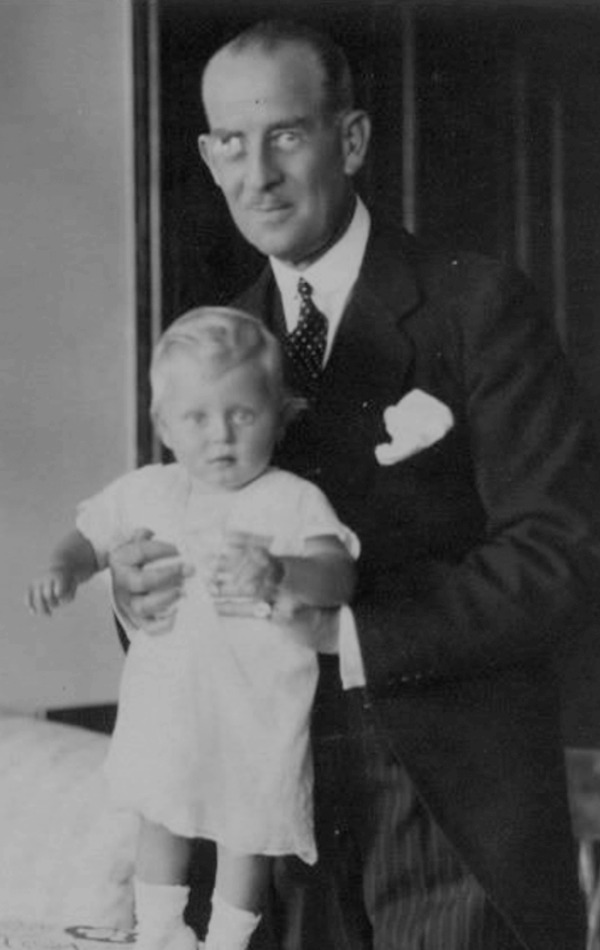
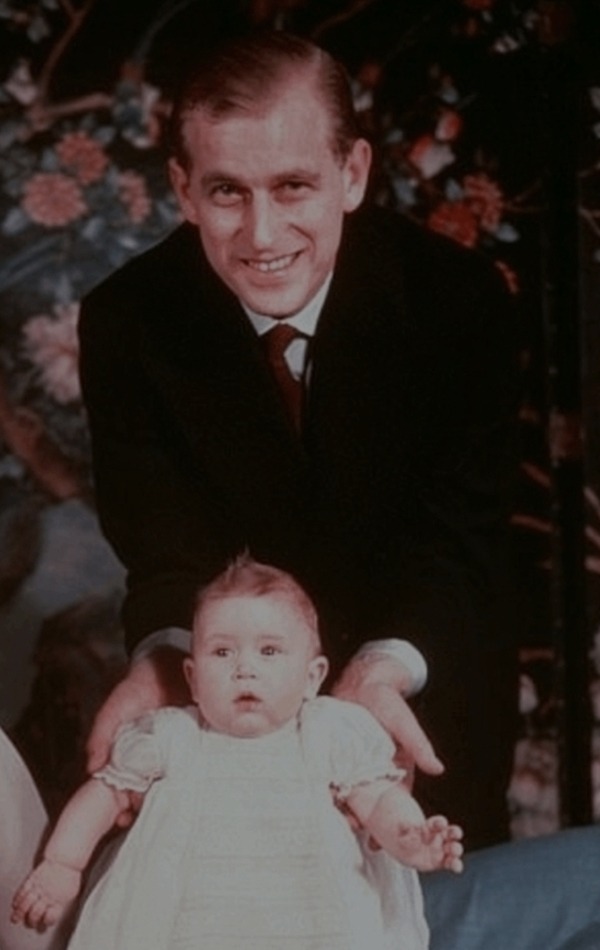
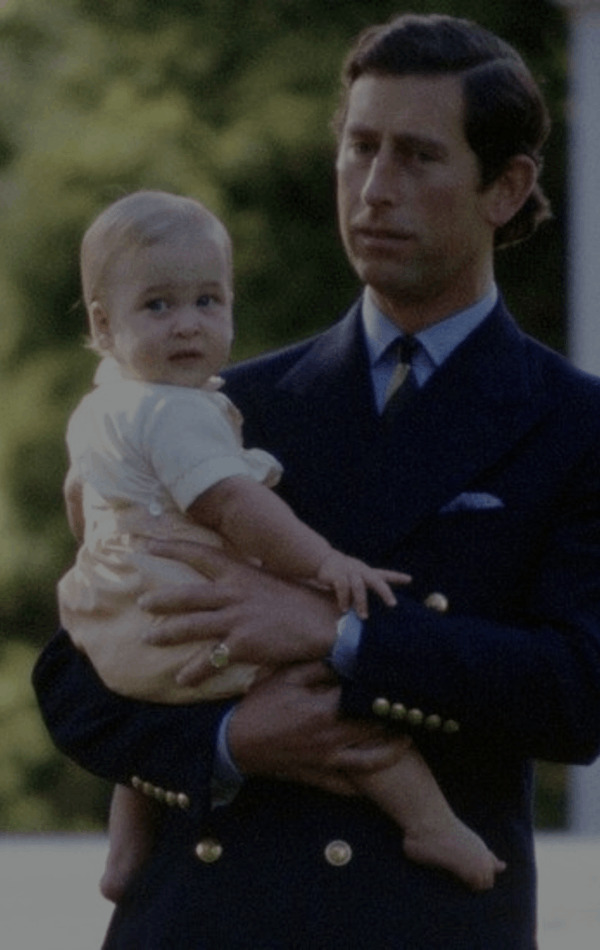

𝐹𝐴𝑇𝐻𝐸𝑅 𝐴𝑁𝐷 𝑆𝑂𝑁 || Andrew & Philip↪Philip & Charles↪Charles & William↪William & George
#its not the same making edits on phone but oh well :'')#Baby George was the cutest 🥺 man 😭#Prince Andrew of Greece#Prince Philip#Prince Charles#King Charles iii#Prince of Wales#Prince William#Prince George#BRF#British royals#Royal family#my edit#Happy Father's day
425 notes
·
View notes
Text

Christening of PRINCE RICHARD OF GLOUCESTER, October 20, 1944 // RCT
‘The Duchess of Gloucester had another son a few days ago [August 26] - a Caesarian operation - and there is much discussion as to what name the child shall be given. The King favours Charles, which I think would be a good idea, but the Gloucesters apparently fancy Richard.’
Alan ‘Tommy’ Lascelles - diary entry, 31 August 1944
photograph shows L to R. (standing): the Earl of Dalkeith, the Duke of Buccleuch, the King, the Duke of Gloucester, George II of the Hellenes, the Marquess of Cambridge. (seated): Lady Margaret Alexander (who stood proxy for General Sir Harold Alexander), Princess Margaret, Lady Sybil Phipps, the Queen, the Duchess of Gloucester with baby Richard, Queen Mary, Princess Marie Louise, Princess Elizabeth. (seated in front): Prince Michael and Princess Alexandra of Kent and Prince William of Gloucester.
#King George VI#Queen Mother#Prince Richard Duke of Gloucester#Queen Elizabeth II#Princess Margaret#Princess Alice#Prince Henry#Queen Mary#British Royal Family#1944#1940s#Princess Alexandra of Kent#Prince Michael of Kent#Prince William of Gloucester#George II of Greece#Princess Marie Louise#i've never used this many tags before lol
29 notes
·
View notes
Text
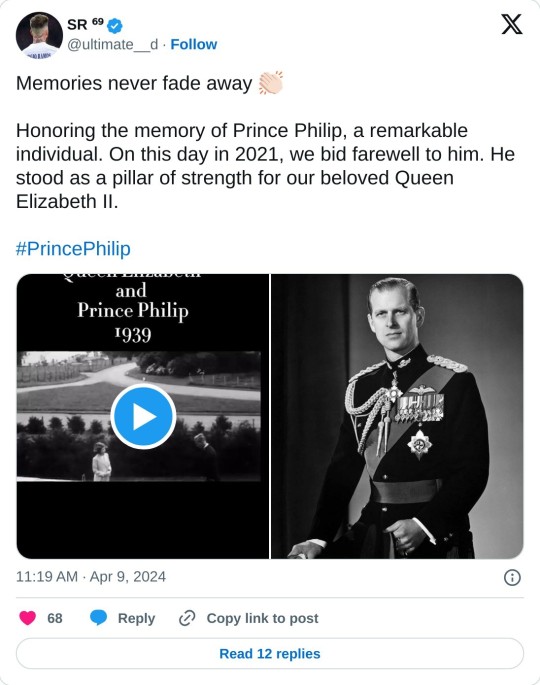
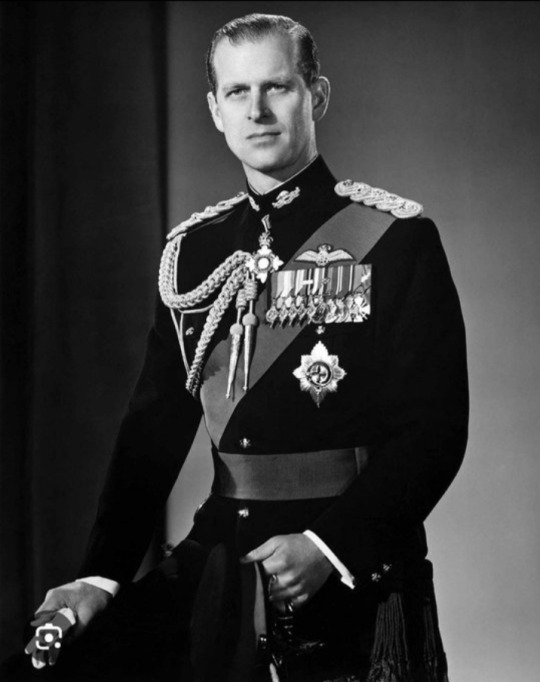
Prince Philip, Duke of Edinburgh (born Prince Philip of Greece and Denmark, later Philip Mountbatten; 10 June 1921 – 9 April 2021), was the husband of Queen Elizabeth II.
As such, he was the consort of the British monarch from his wife's accession on 6 February 1952 until his death in 2021, making him the longest-serving royal consort in history.
🖤💜🖤
#Prince Philip#Duke of Edinburgh#British Royal Family#Prince Philip of Greece and Denmark#Philip Mountbatten#House of Glücksburg#Queen Elizabeth II
93 notes
·
View notes
Text
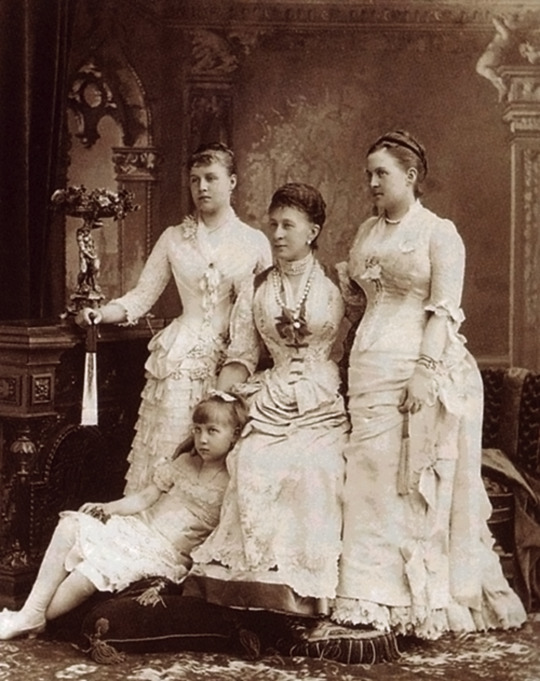
Grand Duchess Alexandra Iosifovna of Russia (née Alexandra of Saxe-Altenburg) with daughter Queen Olga of Greece (née GD Olga Konstantinovna), and granddaughters Princesses Alexandra and Marie of Greece and Denmark (later GD’s Alexandra and Maria Georgievna), 1880s
#so regal!#🤍#greek royal family#russian imperial family#romanov#romanovs#Alexandra iosifovna#Olga Konstantinovna#queen olga of greece#queen Olga of the Hellenes#princess alexandra of Greece and denmark#Alexandra Georgievna#princess marie of greece and denmark#maria georgievna#1880s
100 notes
·
View notes
Text

Jackie Kennedy poses for cameras at the Tatoi Palace in Greece during her trip on October of 1963. With her are Queen Fredericia, Princess Irene, and Lee Radziwill.
#jackie kennedy#vintage#icons#lee radziwill#the kennedys#jackie o#1960s#60s#60s icons#vintage gif#60s vintage#60s glamour#60s girl#60s hair#60s women#1960s icons#1960s women#1960s fashion#vintage women#vintage beauty#vintage celebrities#greece#greek royal family#first lady#fashion icon#style icon#american vintage#beautiful women#interesting people#high society
73 notes
·
View notes
Text

Chat did I cook
Odysseus of Ithaca! (Do you know who I am?)
I kinda don't like my design for his pin thingy, but oh well
Does he look okay? I'm not really used to either drawing guys or digital art so...
If you have any feedback, comment!
If you have requests, send me an ask!
#odysseus#the odyssey#epicthemusical#greek mythology#epic the musical#artists on tumblr#adobe illustrator#art#ancient greek#epic odysseus#ody#chat did i cook#my art#the royal family of ithaca#odysseus of ithaca#odyssey#ithaca#ancient greece#greece#the illiad
23 notes
·
View notes
Text
nicholas: my spanish is very bad
me: you 👏🏼 speak 👏🏼 spanish 👏🏼 really 👏🏼 well 👏🏼
#he said that his family is from greece and that the accents are a bit alike#he also talked about music#nicholas galitzine#red white and royal blue
134 notes
·
View notes
Text
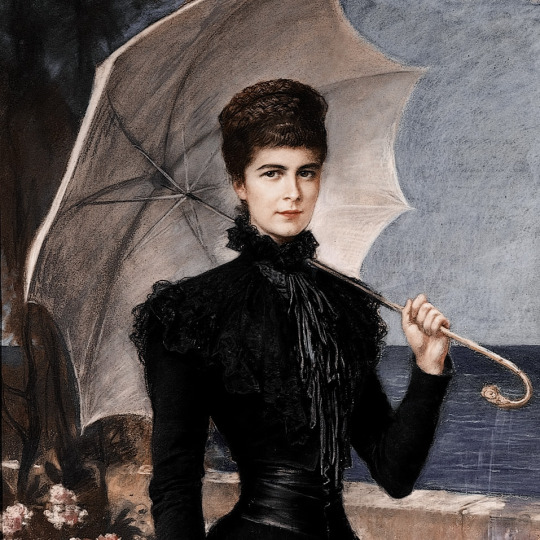

Empress Elisabeth of Austria and her Corfiot palace through the eyes of the Greek royals.
Greece was destined to offer the Empress Elisabeth the hospitality of its soil. She chose Greece as the country where she would hide herself and her sorrow. At Corfu she bought a site of ground from an old Corfiote Statesman called Braïla, and on it she built the Palace which she called "Achilleion", after her hero Achilles, whose statue was in the middle of the top garden terrace, and represented him at the hour of his death, drawing the arrow out of his heel. When in Corfu, it was understood, she was to be strictly incognito, and her wishes were always respected. One day, suddenly, when we least expected it, she arrived at Athens, having travelled by the ordinary steamer, and called at the Palace accompanied by a lady -in-waiting. She asked the porter whether she could see the King and Queen. On the porter's inquiring who she was, she replied she was "the Empress of Austria." Whereupon we were brought down to verify that statement . It seemed impossible╴but it was the Empress of Austria! Needless to say she obtained her interview, and after half an hour's conversation she took her departure, insisting that her visit should not be returned by my parents. As she was anxious to study Greek culture, she decided to learn modern Greek, and applied herself to the task with great energy and perseverance. She engaged a tutor for Greek conversation. Her first was Dr. Christomanos, an author and poet, who wrote a charming life of the Empress, which was translated into several languages. Her last was Count A. Mercati, who afterwards became Master of King Constantine's household. Accompanied by her tutor, the Empress used to go off on a five or six hours' walk, all over the island; and even for the picturesque ceremony of combing and brushing her hair the tutor had to be present, talking Greek to her all the time. She learnt to speak Greek quite faultlessly. In the arrangement of her house the Empress took great pride, setting up the statues of all her new "Gods"; Sophocles, Euripides, Plato and Aristotle. She also had a statue of Heine, the poet, erected in a shrine. When the Kaiser bought the Achilleion, he at once banished Heine, and raised Achilles from his recumbent position into a standing War Lord, with gilded helmet and shield, so that the first sight of Achilleion should be his glittering helmet. It is a pity that the Empress tried to improve the natural beauty of the spot. Her lack of taste, I may even ungraciously say her eccentricities, were almost an eyesore. There was a grotto of artificial rock and mirrors, destined as a home for monkeys, who luckily never came to inhabit it. Though the island abounded in oranges, she sent to Italy for her fruit. The view from the terrace over all the plain of Corfu, with its olive groves groups cypresses on one side and the sea and the mountains of Albania on the other one of the most exquisite I have ever seen.
The memoirs of His Royal Highness, Prince Nicholas of Greece and Denmark, My fifty years, 1926.
I was a child when the Empress came to Athens and saw her only once or twice, but I remember her more vividly than many people I knew far better. I imagine it was the same with everyone who came in contact with her. Her brilliant, beautiful and restless personality left an indelible impression. She was so enchanted with Greece that she decided to build a villa in Corfu. The site she chose could not have been more beautiful, about twelve miles outside the town, set on a high hill overlooking the sea on one side and a chain of mountains on the other. But she was too impatient even to look at the plans and gave the architect carte blanche. So instead of the simple cottage she had intended he erected an orate and hideous palace lavishly adorned with frescoes, statues and bronzes of every description. This atrocity cost the Austrian Govemment twelve million crowns, I believe. The Empress's life was dominated by the fear of losing her beauty. As she grew older it became an obsession. Hours were spent every moring brushing the glotious brown hair that she wore gathered into two great plaits coiled around her head. This hair-brushing was a matter of solemn ritual. Any hairs that fell out during the process were carefully collected and presented to the Empress on a silver salver. If their number proved to be too many the entire day was blackened to her. Once a captain of a Russian gunboat reported that he had seen a yacht coming into the Piraus harbour with a woman seated on the deck whose mass of hair reached down to the ground while two attendants stood behind her brushing it. " That could only be the Empress of Austria." said my father, when he heard the story. Later in the day a carriage drove up to the Palace and a mysterious visitor was announced, a lady who refused to give her name. It was, as we expected, the Empress Elizabeth. She insisted on preserving a strict incognito while she was in Greece, although it seemed rather unnecessary, since everyone knew who she was. She detested nothing so much as being photographed, or even looked at for that matter, and always carried a large fan with her on her walks, so that she could unfurl it and hide her face from the passers-by. The Empress was a fine woman in many respects, far finer, I think, than most of her biogtaphers have represented her. Intelligent, intuitive, sensitive, she had all the qualities to make a great empress. But she was tragically lacking in a sense of proportion. Even in the small issues of everyday life she had no idea of modera-tion. She could not take anything up without making it a mania. While she was in Corfu she set herself to learn Greek, although she had gone there to rest. Now Greek is a complicated language and its study is hardly to be recommended as a restful pursuit. The Empress certainly did not regard it as such either for herself or any one else, for she wore out her two teachers, Count Mercati and Mr. Christomanos. Every day she walked ten or twelve miles with one or the other, talking Greek all the way and, even during the hair-brushing ceremony, one of them was always present reading to her. Her figure became another obsession with her. Although she was exaggeratedly slender when she came to Greece (she weighed, I believe, only seven stones) no Hollywood film star could have followed out a more Spartan regime. Her constant dieting made her irritable and depressed. Even when she lunched with my mother and father she would often eat nothing but a salad and some fruit, and she would start off immediately afterwards on one of her exhausting walks, skimming over the ground like a restless, beautiful wraith.
The memoirs of His Royal Highness, Prince Christopher of Greece and Denmark, 1938.
#long af post i’m sorry#empress elisabeth of austria#empress sisi#greek royal family#prince nicholas of greece and denmark#prince christopher of greece and denmark
121 notes
·
View notes
Text
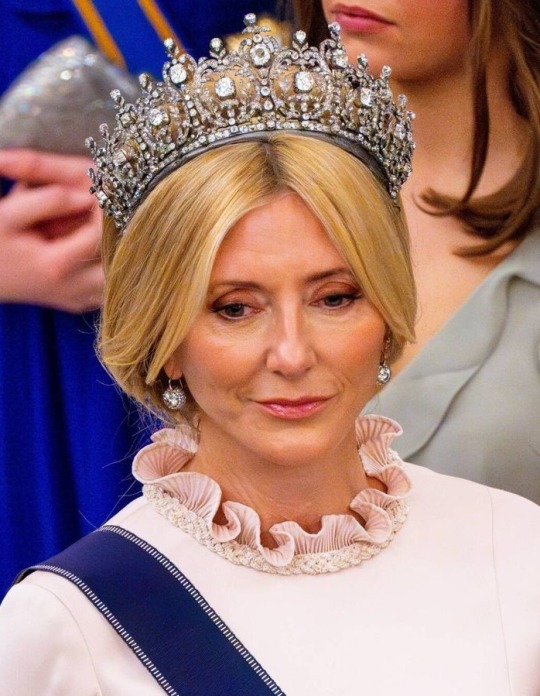
TIARA ALERT: Crown Princess Marie Chantal of Greece wore Queen Sophia's Diamond Tiara for the gala dinner celebrating Prince Christian of Denmark's 18th birthday at Christianborg Palace on 15 October 2023.
#Tiara Alert#Crown Princess Marie Chantal#Crown Princess Pavlos#Greece#Greek Royal Family#tiara#diadem#royal jewels#royaltyedit#Prince Christian's 18th Birthday
127 notes
·
View notes
Text

Granddaughters of Olga Konstantinovna, Queen of the Hellenes.
From left: Sophie, Katherine, Cecilie, Marina, Margarita, Xenia Georgievna, Theodora, Olga, Helen, Nina Georgievna, Elizabeth and Irene. There are only two missing: Maria Pavlovna the Younger (daughter of Olga's daughter Alexandra) and Eugenie (daughter of Olga's son George).
#romanov#greek royal family#irene of greece#elizabeth of greece#nina georgievna#xenia georgievna#olga of greece#marina of greece#helen of greece#sophie of greece#cecilie of greece#margarita of greece#katherine of greece#theodora of greece#my collection#reprints
56 notes
·
View notes
Text
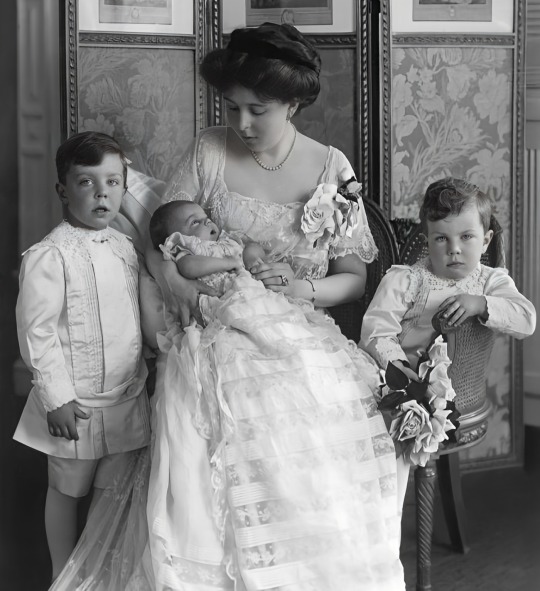
ᴀ ᴄᴜᴛᴇ ᴘʜᴏᴛᴏ sʜᴏᴡɪɴɢ ᴄʜʀɪsᴛɪᴇɴɪɴɢ ᴏғ ᴘʀɪɴᴄᴇss ɪɴɢʀɪᴅ ᴏғ sᴡᴇᴅᴇɴ, 𝟻ᴛʜ ᴍᴀʏ 𝟷𝟿𝟷𝟶. ʜᴇʀ ᴍᴏᴛʜᴇʀ, ᴘʀɪɴᴄᴇss ᴍᴀʀɢᴀʀᴇᴛ ᴏғ ᴄᴏɴɴᴀᴜɢʜᴛ, ʜᴏʟᴅs ʟɪᴛᴛʟᴇ ɪɴɢʀɪᴅ ᴡʜɪʟᴇ ʜᴇʀ ʙʀᴏᴛʜᴇʀs, ᴘʀɪɴᴄᴇ ɢᴜsᴛᴀғ ᴀᴅᴏʟғ, ᴅᴜᴋᴇ ᴏғ ᴠäsᴛᴇʀʙᴏᴛᴛᴇɴ ᴀɴᴅ ᴘʀɪɴᴄᴇ sɪɢᴠᴀʀᴅ ᴀʀᴇ ʙʏ ᴛʜᴇɪʀ sɪᴅᴇ.
𝙶𝚞𝚜𝚝𝚊𝚏 𝙰𝚍𝚘𝚕𝚏 𝚒𝚜 𝚏𝚊𝚝𝚑𝚎𝚛 𝚘𝚏 𝚝𝚑𝚎 𝚌𝚞𝚛𝚛𝚎𝚗𝚝 𝚂𝚠𝚎𝚍𝚒𝚜𝚑 𝙺𝚒𝚗𝚐 𝙲𝚊𝚛𝚕 𝚇𝚅𝙸 𝙶𝚞𝚜𝚝𝚊𝚏, 𝚠𝚑𝚒𝚕𝚎 𝙸𝚗𝚐𝚛𝚒𝚍 𝚒𝚜 𝚖𝚘𝚝𝚑𝚎𝚛 𝚘𝚏 𝚝𝚑𝚎 𝚌𝚞𝚛𝚛𝚎𝚗𝚝 𝙳𝚊𝚗𝚒𝚜𝚑 𝚀𝚞𝚎𝚎𝚗 (𝚞𝚗𝚝𝚒𝚕 𝟷𝟺𝚝𝚑 𝙹𝚊𝚗𝚞𝚊𝚛𝚢) 𝙼𝚊𝚛𝚐𝚛𝚎𝚝𝚑𝚎 𝙸𝙸 𝚊𝚗𝚍 𝙰𝚗𝚗𝚎-𝙼𝚊𝚛𝚒𝚎, 𝚏𝚘𝚛𝚖𝚎𝚛 𝚀𝚞𝚎𝚎𝚗 𝚘𝚏 𝙶𝚛𝚎𝚎𝚌𝚎. 𝚃𝚑𝚊𝚝 𝚖𝚊𝚔𝚎𝚜 𝚂𝚌𝚊𝚗𝚍𝚒𝚗𝚊𝚟𝚒𝚊𝚗 𝚛𝚞𝚕𝚎𝚛𝚜 𝟷𝚜𝚝 𝚌𝚘𝚞𝚜𝚒𝚗𝚜!
~~~˚ʚ♡ɞ˚~~~
~~~𓆩♡𓆪~~~
#princess ingrid of sweden#queen ingrid of denmark#prince gustaf adolf#prince sigvard#princess margaret of connaught#crown princess margaret of sweden#king carl xvi gustaf#queen margrethe ii#14th january 2024 ;(#swedish royal family#danish royal family#drf#swrf#bernadotte#house of bernadotte#glücksburg#house of glücksburg#queen anne-marie of greece#queen anne-marie
48 notes
·
View notes
Text







BORN ON THIS DAY:
Prince Michael of Kent (Michael George Charles Franklin; born 4 July 1942) is a member of the British royal family who is 52nd in line to the British throne as of June 2024.
The younger son of Prince George, Duke of Kent, and Princess Marina of Greece and Denmark, he is a grandson of George V, nephew of Edward VIII and George VI, and first cousin of Elizabeth II.
Michael's mother was also a first cousin of Prince Philip, Duke of Edinburgh, consort of Elizabeth II, making him both a second cousin and first cousin once removed to Charles III.
📷: Central Press / Getty Images / Tim Graham Photo Library via Getty Images / Ian Tyas / Keystone / Getty Images
#Prince Michael of Kent#Prince George#Duke of Kent#Princess Marina of Greece and Denmark#British Royal Family#Baroness Christine von Reibnitz#Princess Michael of Kent
49 notes
·
View notes
Text
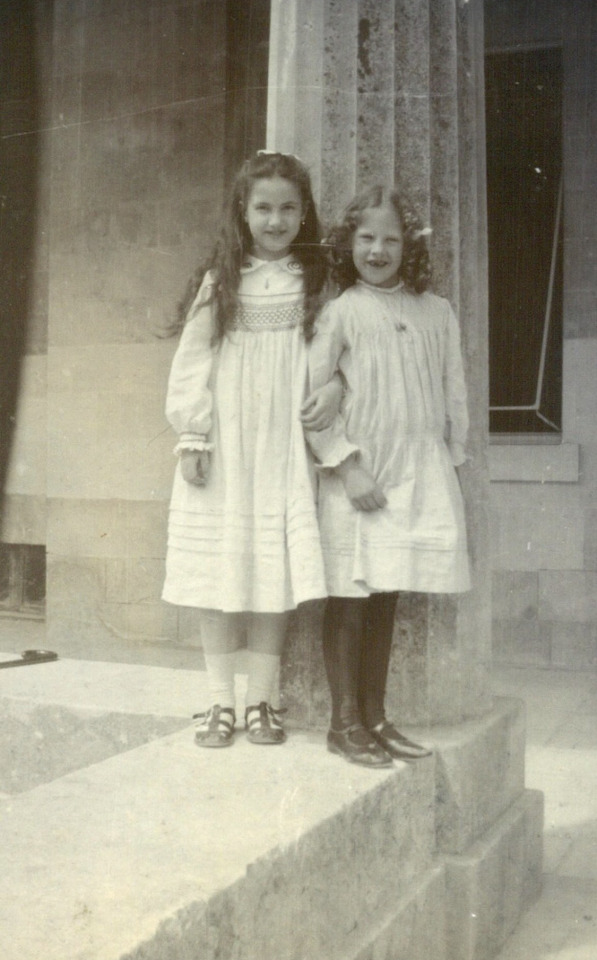
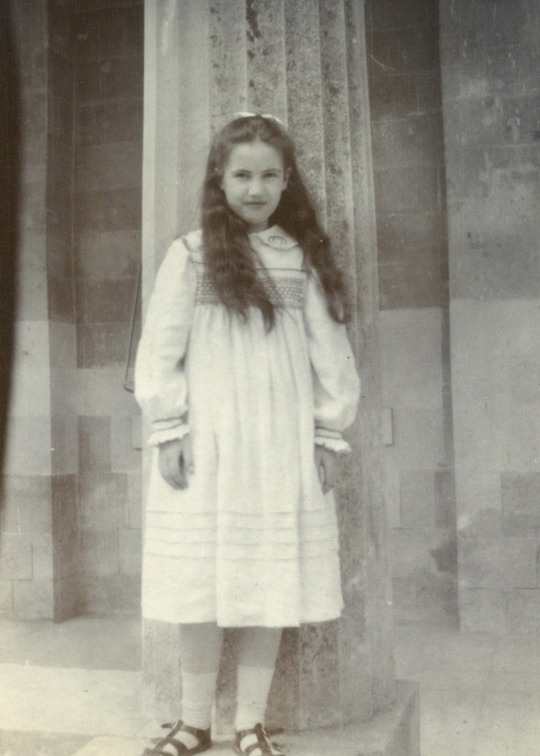
Princess Nina Georgievna of Russia with her Greek cousin Princess Irene of Greece and Denmark, Corfu 1912 🌿🫧
Source: Ilya aka LastRomanovs on Flickr and Sledstvie on Instagram
#cuties#greek royal family#Greece#nina georgievna#princess Nina Georgievna#irene of greece and denmark#princess irene of greece and denmark#Irene of Greece#princess Irene#Romanovs#Romanov#1911#russian imperial family#LastRomanovs#sledstvie
64 notes
·
View notes
Text
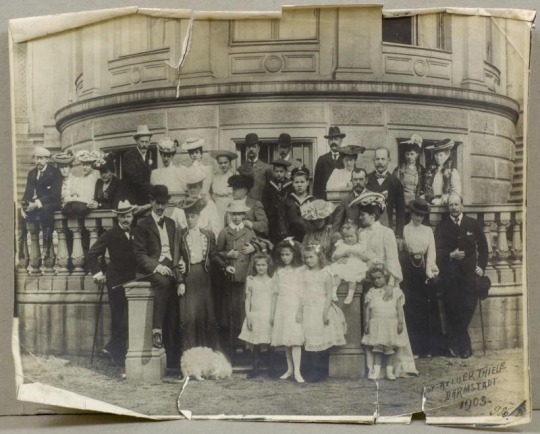
"One of the few occasions when I ever saw the Czarina really happy was when she went back with her husband to her old home in Darmstadt for the marriage of my brother Andrew to Princess Alice, daughter of Prince Louis of Battenberg (who later took the title of Marquis of Milford Haven). She was like a girl released from school then, her face lost its look of sadness. She and Queen Alexandra were the two most beautiful women at the wedding, the Empress in misty delphinium blue and the Queen of England in a dress of amethyst sequins and wearing an amethyst necklace and tiara. There was, of course, a tremendous family reunion for the marriage and the festivities lasted through several days of dinners, balls and gala performances at the opera. That was in 1903. The other day I came across a photograph of some of the guests and realised that nearly half of the group died by violence not very much later. The Emperor, the Empress, their children, the Grand Duchess Elizabeth and several Russian Grand Dukes were put to death during the Revolution. My father was assassinated, some of the English guests and one or two of the German princes were killed in the Great War. Perhaps it was as well for us that we could not read the future, for I think it would have cast a shadow over the tejoicings.
Andrew and Alice had two wedding ceremonies, the first in the Protestant Church and the second in the Russian Church with Greek Orthodox rites. During the service the Russian priest asks the bride two questions . . . whether she consents of her own free will to matry her husband and whether she has already promised her hand to any one else. As my sister-in-law is slightly deaf she was carefully tehearsed the day before, but, even so, at the last moment she was so nervous that she confused the questions and made the responses in the wrong order, to the horror of the officiating priests and the intense amusement of the guests.
My mothet’s sister, the Duchess Vera of Wuttemberg, was at the wedding and, as usual, my brothers and 1 teased her unmercifully. Her appearance was irresistibly funny in our eyes, for she was small and dumpty, with a fat, round, spectacled face and, in the days when the shingle was unknown, she wore her hair cut short. Her hats and even her tiaras were always secured to her head by bands of elastic. At the family dinner after the wedding my brother George sat next to her and, at a pause in the proceedings, snatched off her tiara and put it on his own head. Everybody laughed, Aunt Vera included, though she vowed vengeance on the culprit. Her turn came, as she thought, 2 little later, when the bride and bridegroom started on the honeymoon. We were all gathered at the door throwing rice after them, when someone knocked off poor Aunt Vera’s glasses, which were smashed to atoms on the stone steps. She turned round quickly and, guessing, although she was unable to see clearly without her spectacles, that George was to blame again, dealt a mighty box on the ear of the petson standing immediately behind her. Unfortunately, it was not George, for he had taken care to slip out of range, but the British Admiral, Mark Kerr, who was the recipient of it!"
Memoirs of H R H Prince Christopher of Greece
13 notes
·
View notes